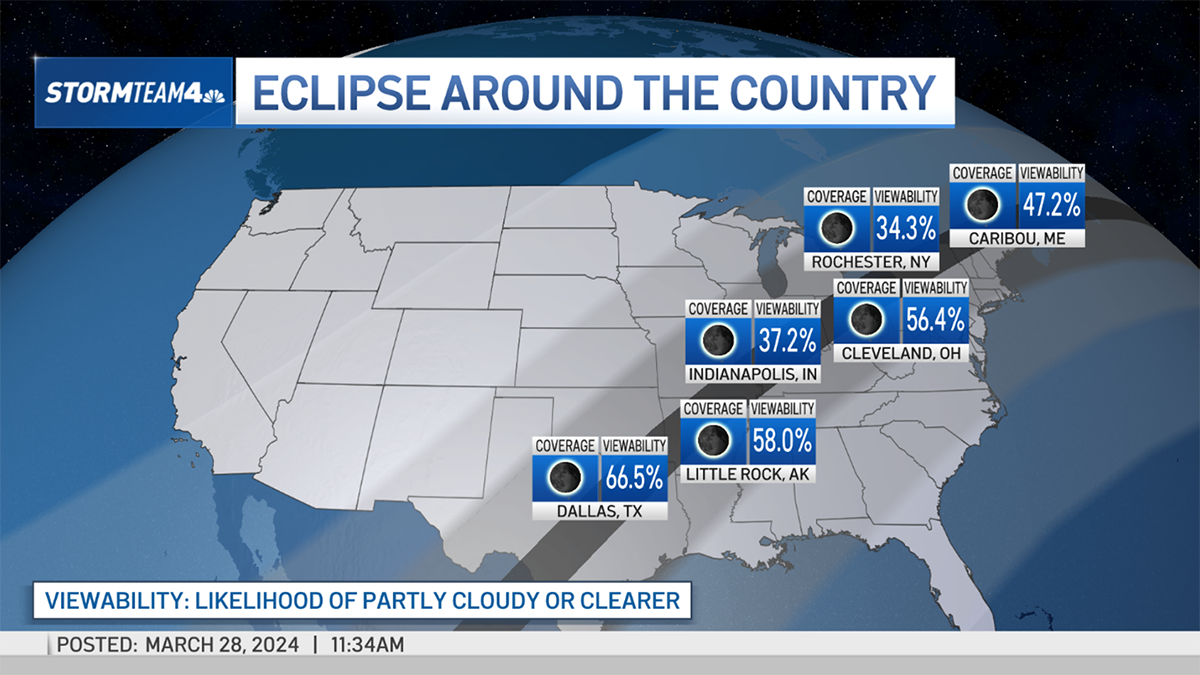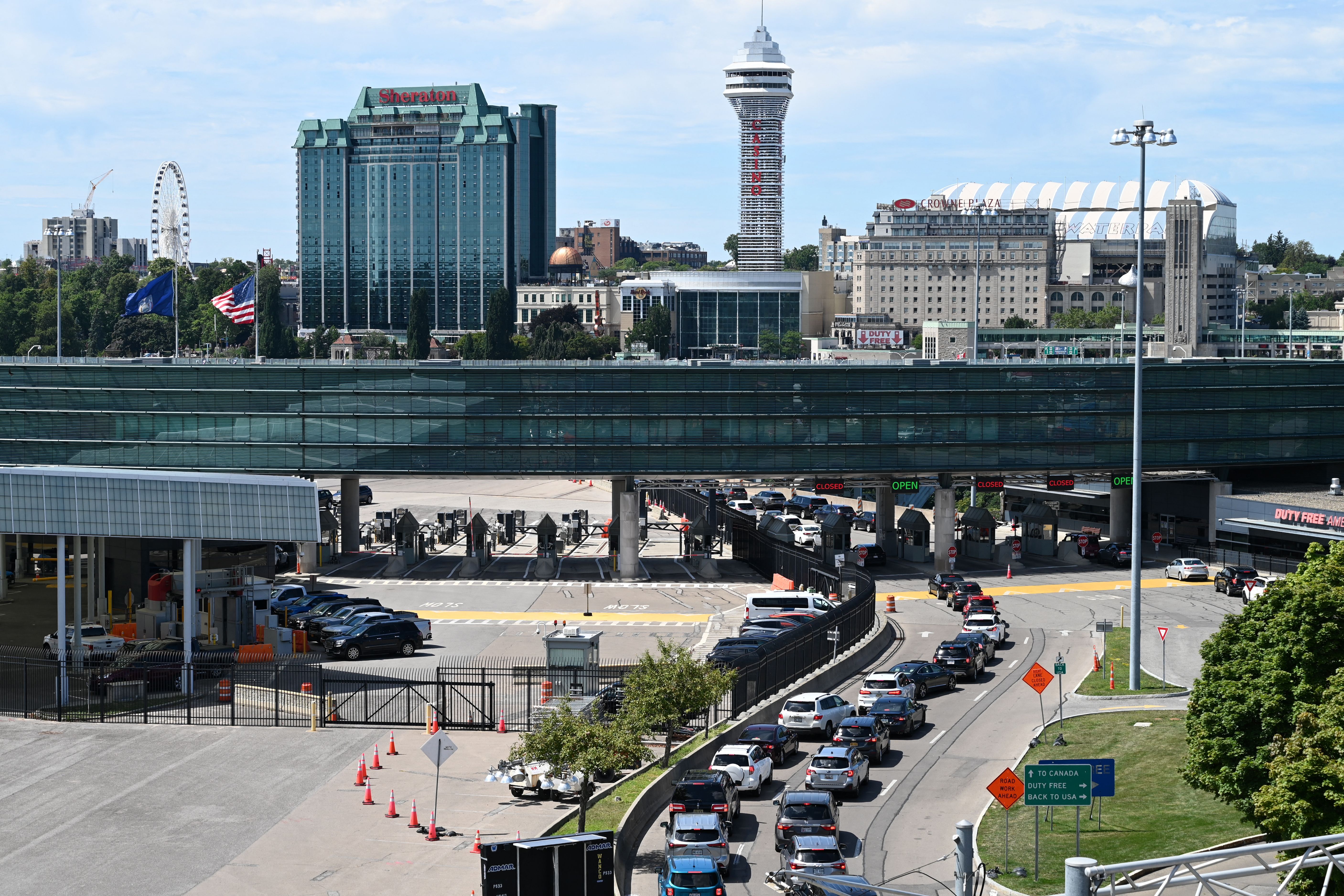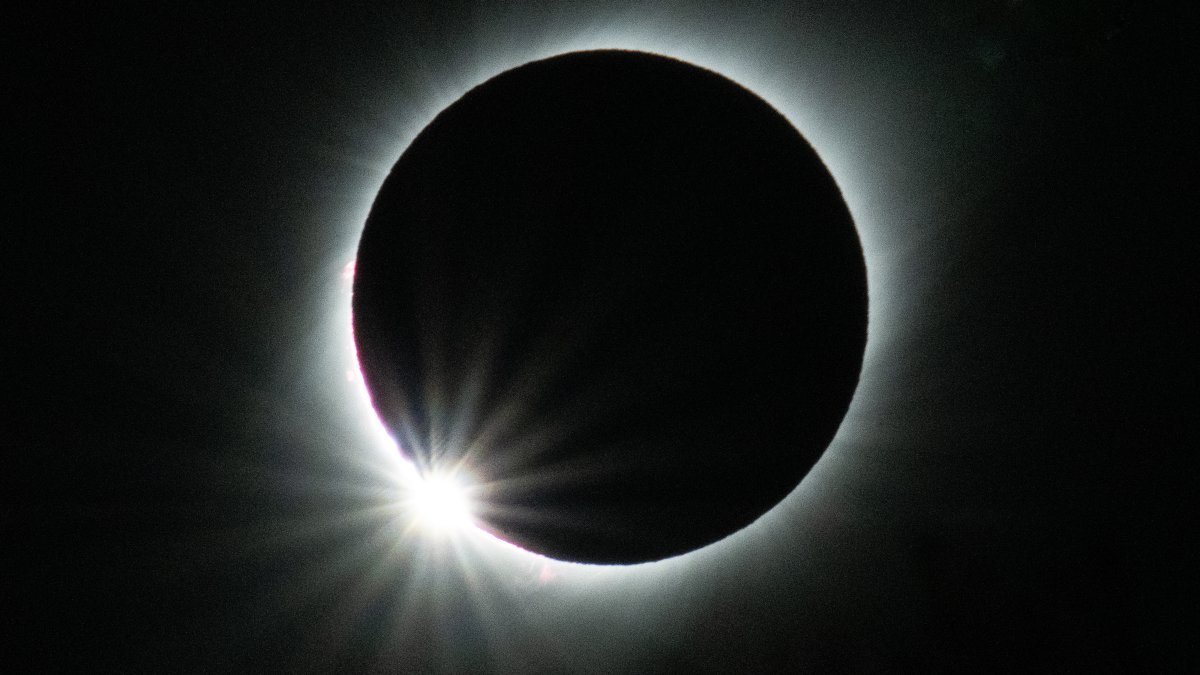What to Know
- On Monday, April 8, 2024, a total solar eclipse will occur as the moon moves in front of the sun blocking the sun from view either totally or partially for most of the United States
- While the New York City area is not in the path of totality, city residents will see a partial eclipse
- Areas of upstate New York, including Buffalo, Rochester and Plattsburgh will be in the path of totality for up to four minutes
We are a day away from one of the most exciting celestial events - a total solar eclipse.
During a total solar eclipse, the moon passes in front of the sun, blocking at least part of it from view. The last total solar eclipse was on Aug. 21, 2017.
While the New York City area is not in the path of totality, city residents will see a partial eclipse, which will start just after 2 p.m. on Monday.
When will the solar eclipse occur and where?
Get Tri-state area news delivered to your inbox. Sign up for NBC New York's News Headlines newsletter.
During the afternoon of April 8, 2024, a total eclipse will encompass the western and northern parts of New York State. In less than 15 minutes within a 3:15 p.m. to 3:30 p.m. window, the moon will pass between the earth and sun, turning day into night for 1 ½ minutes to 3 ½ minutes.
The roughly 100-mile wide path of totality will enter in the southwestern part of the state just after 3:15 p.m., and will depart northern New York just before 3:30 p.m. Cities and towns within this path include Jamestown, Buffalo, Rochester, Syracuse, Watertown, Old Forge, Lake Placid and Plattsburgh. The entire event will last for up to 2 ½ hours, marking the time the sun is first obstructed to the last moments when the moon’s shadow is cast.
For other areas of the state that are outside the path, there will still be quite a celestial spectacle. The minimum coverage in the state will be on Long Island, with the sun being shadowed at 88 percent there. New York City will see 89 percent coverage, with 96 percent in the Capital Region.
New York City will see a partial eclipse beginning around 2 p.m. and peaking around 3:25 p.m, according to Storm Team 4. The partial eclipse is expected to end in NYC around 4:36 p.m. Take a look at an early forecast for the eclipse.
What are the times of totality in New York for the solar eclipse?
Here's information courtesy of the New York state official tourism website:
Jamestown
- Partial eclipse begins: 2:03:38 p.m.
- Full eclipse begins: 3:17:55 p.m.
- Full eclipse ends: 3:20:46 p.m.
- Partial eclipse ends: 4:31:43 p.m.
- Totality duration: 2 minutes, 51 seconds
Buffalo
- Partial eclipse begins: 2:04:56 p.m.
- Full eclipse begins: 3:18:20 p.m.
- Full eclipse ends: 3:22:06 p.m.
- Partial eclipse ends: 4:32:10 p.m.
- Totality duration: 3 minutes, 46 seconds
Rochester
- Partial eclipse begins: 2:07:00 p.m.
- Full eclipse begins: 3:20:08 p.m.
- Full eclipse ends: 3:23:47 p.m.
- Partial eclipse ends: 4:33:26 p.m.
- Totality duration: 3 minutes, 39 seconds
Syracuse
- Partial eclipse begins: 2:09:01 p.m.
- Full eclipse begins: 3:23:03 p.m.
- Full eclipse ends: 3:24:30 p.m.
- Partial eclipse ends: 4:34:49 p.m.
- Totality duration: 1 minutes, 27 seconds
Watertown
- Partial eclipse begins: 2:10:05 p.m.
- Full eclipse begins: 3:22:33 p.m.
- Full eclipse ends: 3:26:12 p.m.
- Partial eclipse ends: 4:35:01 p.m.
- Totality duration: 3 minutes, 39 seconds
Lake Placid
- Partial eclipse begins: 2:13:02 p.m.
- Full eclipse begins: 3:25:07 p.m.
- Full eclipse ends: 3:28:29 p.m.
- Partial eclipse ends: 4:36:43 p.m.
- Totality duration: 3 minutes, 21 seconds
Plattsburgh
- Partial eclipse begins: 2:14:03 p.m.
- Full eclipse begins: 3:25:44 p.m.
- Full eclipse ends: 3:29:18 p.m.
- Partial eclipse ends: 4:37:07 p.m.
- Totality duration: 3 minutes, 34 seconds
For full coverage of the 2024 solar eclipse, click here.




